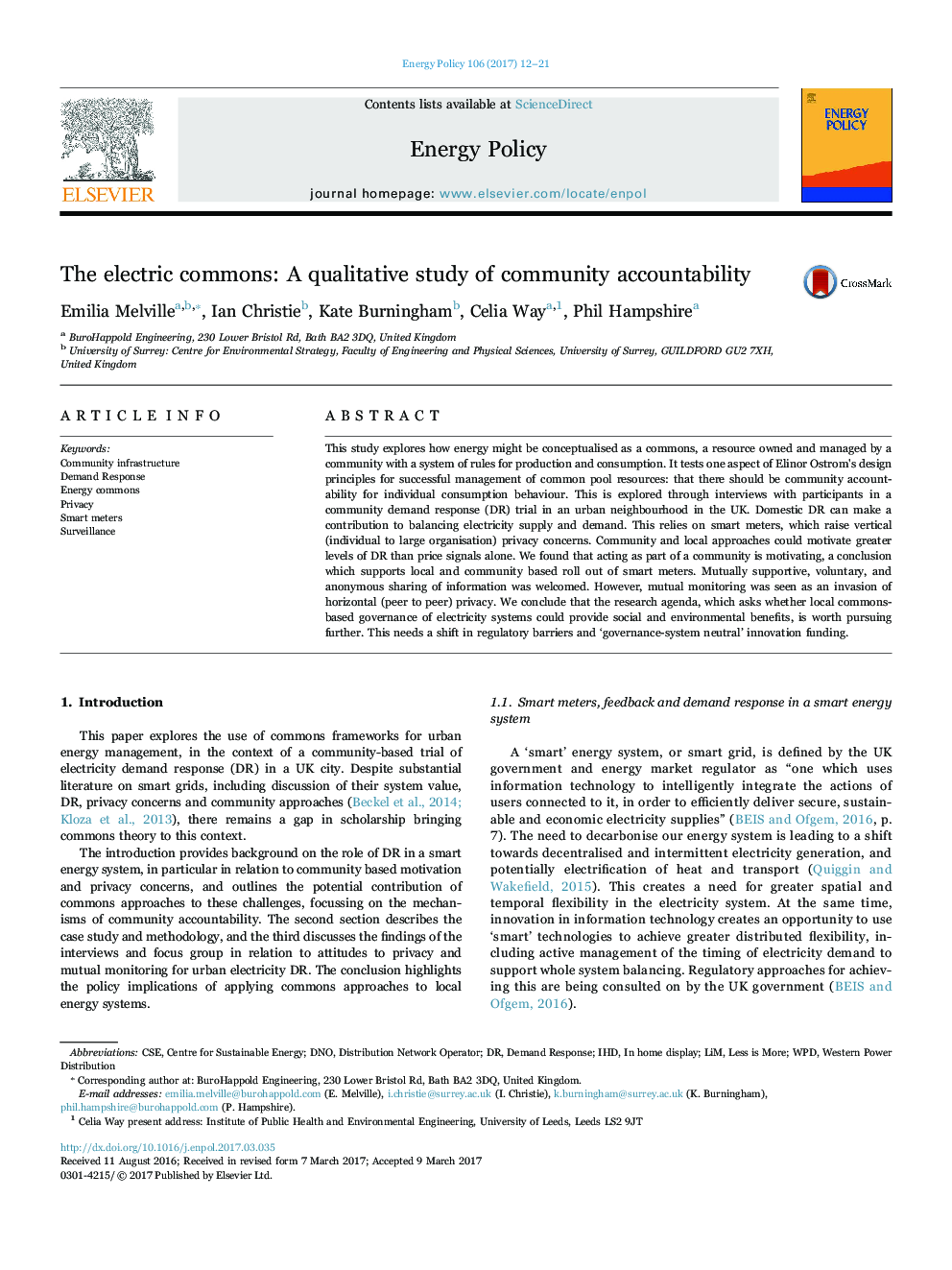| Article ID | Journal | Published Year | Pages | File Type |
|---|---|---|---|---|
| 5105786 | Energy Policy | 2017 | 10 Pages |
Abstract
This study explores how energy might be conceptualised as a commons, a resource owned and managed by a community with a system of rules for production and consumption. It tests one aspect of Elinor Ostrom's design principles for successful management of common pool resources: that there should be community accountability for individual consumption behaviour. This is explored through interviews with participants in a community demand response (DR) trial in an urban neighbourhood in the UK. Domestic DR can make a contribution to balancing electricity supply and demand. This relies on smart meters, which raise vertical (individual to large organisation) privacy concerns. Community and local approaches could motivate greater levels of DR than price signals alone. We found that acting as part of a community is motivating, a conclusion which supports local and community based roll out of smart meters. Mutually supportive, voluntary, and anonymous sharing of information was welcomed. However, mutual monitoring was seen as an invasion of horizontal (peer to peer) privacy. We conclude that the research agenda, which asks whether local commons-based governance of electricity systems could provide social and environmental benefits, is worth pursuing further. This needs a shift in regulatory barriers and 'governance-system neutral' innovation funding.
Keywords
Related Topics
Physical Sciences and Engineering
Energy
Energy Engineering and Power Technology
Authors
Emilia Melville, Ian Christie, Kate Burningham, Celia Way, Phil Hampshire,
